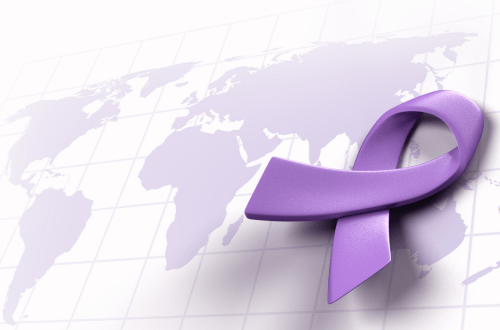Raising Awareness: The Global Impact of World Cancer Day Initiatives
Introduction
World Cancer Day is an international day conceptualized by the Union for International Cancer Control (UICC), an organization formed in 1933 to raise cancer awareness and encourage prevention, detection, and treatment. The global cancer community invests significantly in and works extensively to advance cancer diagnostics, treatment, and precision oncology. By therapeutic area, oncology dominates clinical research and the global clinical trials market. Cancer is, however, still a leading cause of death worldwide, accounting for nearly one in six deaths. According to the World Health Organization (WHO), cancer-causing infections are responsible for approximately 30% of cases in low- and lower middle-income countries, and each year, about 400,000 children develop cancer1. If detected early and effectively treated, many cancers can be cured. Research and innovation in driving equitable access to healthcare can impact the lives of many more cancer patients. In light of disparities in access to cancer care, the theme for World Cancer Day 2022 – 2024 is ‘Close the Care Gap’.
Cancer Research
By therapeutic area, oncology dominates the global clinical trials market (24.7% in 2022) and is estimated to grow at a compound annual growth rate (CAGR) of 6.4% till 2030. Ongoing research on cancer interventions and the growing demand for precision medicine contribute to the high market share.
The Reality of Cancer Research
Despite achievements in cancer research and progress in cancer prevention, diagnosis, and treatment, the gap in equitable access to cancer care is costing lives. On the relevance of closing the care gap, the WHO presents the facts:
- comprehensive care treatment is available in more than 90% of high-income countries vs. less than 15% of low-income countries
- survival of children with cancer exceeds 80% in high-income countries vs. less than 30% in low- and middle-income countries (LMICs)
- five-year breast cancer survival exceeds 80% in most high-income countries vs. 66% in India and 40% in South Africa.
On a positive note, more than 200 partners worldwide are implementing integrated global cancer initiatives. Many development banks have significantly increased their investments in cancer research, prevention, and care.
World Cancer Day Convening Global Leaders in Cancer Control
One of the main objectives of the UICC is to convene global leaders in cancer control – engaging treatment centers, researchers, patient groups, and entities conducting diagnostics, screening, and prevention programs to battle cancer together. Reflecting on the COVID-19 pandemic, the immediate past president of UICC, Professor Anil D’Cruz, spoke of the critical need to conduct and publish robust scientific research to help the general public and cancer patients understand the impact of the pandemic on cancer care. He underlined the need for clear and transparent communication to enable access to reliable information, particularly for decision-makers working towards evidence-based policy changes. In addition to R&D for new treatment options, innovation is necessary to formulate impactful ways to organize and deliver healthcare, respond effectively to healthcare stakeholder needs, and ensure equitable access to care by vulnerable groups.
We are all leaders making health-related decisions at different levels – global, national, community, family, self. Recognizing this, World Cancer Day engages people from all countries and all walks of life in a collective effort to have our voices heard. The intention is to create a groundswell of support to reduce the burden of cancer and inspire advancements in prevention, treatment, and improving the quality of life for people living with cancer.
Global Impact of World Cancer Day
The World Cancer Day three-year ‘Close the Care Gap’ campaign was launched in 2022 with a commitment that World Cancer Day goes beyond just one day. Instead, it is designed to inspire continuous change for meaningful impact. To truly close the gap, far-reaching change, and concerted action at all levels is necessary. Change that is inclusive and evidence-based, and not change purely for the sake of change, includes modifications to how we conduct and prioritize research, design and execute public health programs, and plan for and deliver care. It requires the attention, intervention, and prioritization of policymakers, providers, payers, physicians, patients, and the private sector. It starts with understanding the inequities experienced by all, especially underrepresented groups, along the cancer pathway.
The World Cancer Day 2023 Impact Report records the impact of World Cancer Day in numbers – pointing to over 850 activities and events in 102 countries and territories, over 430,000 social media posts, more than 25,000 press mentions in 170 countries, and over 95,000 campaign materials downloaded. Generating worldwide discussions on equity in cancer care and control, the report aptly labeled the intent that came to fruition, ‘unstoppable together’. Among the many activities inspired by World Cancer Day was the inaugural ‘TFS Together’ Initiative aimed at uniting global colleagues towards a future without cancer.
While UICC members launched numerous initiatives, industry also stepped up to showcase their dedication to cancer research, illustrate the impact of innovation on research, and stand in solidarity with the global cancer community to address care inequities. International agencies play a role in addressing system-level barriers to screening and treatment. Governments renew their commitment to continued advocacy, research, and support for people living with cancer and their caregivers. In this global community, contract research organizations (CROs) like TFS HealthScience play a vital role in providing oncology and hematology CRO services to accelerate market approvals for life-saving compounds.
In the final year of the ‘Close the Care Gap’ campaign, World Cancer Day 2024 will challenge leaders and policymakers to address the root causes of inequity. Let us all stand up, be heard, and encourage our leaders to proactively implement policies and programs for equitable access to cancer prevention, diagnosis, and treatment for all.
Contact us today to learn more about our global and regional experience in oncology and what we do to contribute to life-saving cancer drug development as a cancer CRO
Learn more about our related services and resources:
Contact Us:
Contact us today to learn more.
